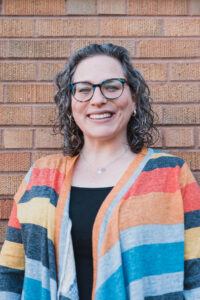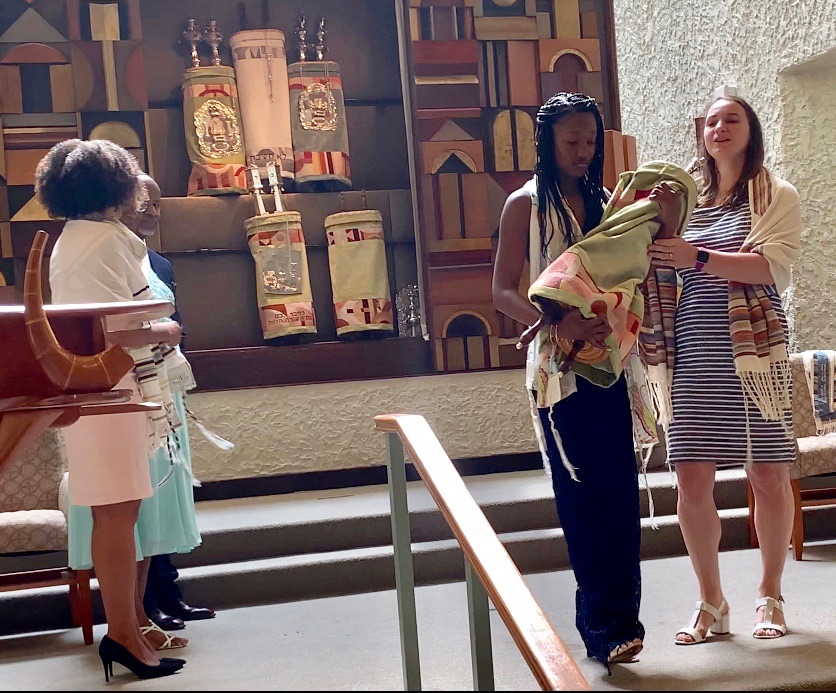Working with college students, there is one thing I know to be true – everyone comes to college expecting to change. Everyone expects that they will have some amount of transformation from the person they are on the first day of their first year to the person they are on graduation day. They will have learned some things. They will have met some people. They will have grown. Some hope it will be dramatic. They will leave behind their high school self and emerge from their chrysalis a totally new creature. Some hope it will be more subtle. They know who they are and retain a solid core sense of self. They might grow physically and intellectually, but they won’t be radically different as a human.
If any tradition can understand the tension between being solidly consistent and consistently mutable, it is the Jewish tradition. We are the ones who read the same book over and over again, but are always looking for a hiddush – a new interpretation. We are the ones who recite the same prayers every day, but are always composing new melodies. We are the ones who name our children after our ancestors, always living with one foot in the past and one foot in the future. We have rituals and practices that ground us day to day, week to week, month to month, year to year, even when we are changing at a rapid pace.
Many scholars have compared the Exodus to a birth. After emerging from the narrow place of slavery to a rebirth through the waters of the Red Sea, the Israelites mature as a people through childlike experiences toward the responsibility of the commandments and then the maturity of being a free people running an adult society in the Promised Land. If that is so, then emerging adulthood – the developmental stage from age 18-29 – is the time of being Bamidbar “in the wilderness.” Bamidbar is the time between, when we are in the midst of the wanderings of life. No longer a child and not yet an adult. In this period of life, it is easy to feel rudderless, to feel unmoored, to feel lost in an expansive desert. In the Biblical Bamidbar, the people were nomadic – setting up camp and then, probably right when they felt settled, picking up and moving to the next place. College students get this. Just by coming to campus, one is uprooted from the rhythms of life they have known, and often finds themselves in a new place, with new people and new customs. And as soon as you get settled, you move again, and again. Bamidbar there is a lot of complaining. Bamidbar there is rebellion. And yet, bamidbar one is definitely on a path, following those with just a little more information and experience. And moving forward with a lot of faith. Step by step.
Bamidbar is an easy place and time of life to be swayed by those with easy answers to difficult questions. It happens in the Torah and it happens on campus. Bamidbar is an easy time to test limits, and to take a loud, bold stance and not consider the consequences. This is exhilarating and terrifying. This is empowering and emboldening in ways that are exciting and terrifying. Because both good ideas and bad ideas, righteous stances and self-righteous, even dangerous stances get to take up space bamidbar.
We find ourselves right now in the Hebrew month of Heshvan. A month with no no structure. With its lack of holidays, Heshvan is called Marheshvan. A bitter month. And these last few weeks have brought our people and our world so much bitterness. Marheshvan is followed immediately by Kislev, the month that unfailingly brings us the miracle of light in a time of great darkness. And right now we are cast so deeply in the darkness.
How do we make it through the bitterness, the darkness, the uncertainty of this time? We call on what we know from that wild, rudderless, nomadic experience of being both lost and guided bamidbar. We go step by step, breath by breath. In times of distress, in times of seemingly endless transition, we find strength in the rhythms of the day to day and week to week that keep us whole and connected. When we see ourselves as humans in transition, learning and growing and changing, we are able to make decisions about who and how we want to be in the world. And we know we are not alone. We wander in a diverse community of fellow travelers. Not only are we never the only one wandering, but also, bamidbar we have both a guide and a God – a human mentor and a spiritual compass. Every time a student feels lost and alone in the difficulties of emerging adulthood, I remind them as I remind you now: You are not the only one. You are not the first. You don’t have to do this without help. You don’t have to do this by detaching your mind from your heart and soul.
If you look to Jewish community you will find familiarity and newness; comfort and challenge; a space to learn and a space to teach; opportunities to lead and opportunities to follow.
I invite you, regardless of your current life stage, to think of yourself as emerging. Think about the decisions that were made for you that made you who you are – for better and for worse. What choices did your parents or family of origin make that shaped your Jewish experience or lack thereof? Now think about the decisions you have made that have made you who you are so far. Which of those were intentionally replicating the traditions of those who came before you? Which were all you, and set you off on your own, different path? What is the next step, the next decision, the next breath you can take to continue moving you through the midbar?
I’m Rabbi Jessica Lott and this has been Tipat Torah.

Rabbi Jessica Lott is the Campus Rabbi at Northwestern Hillel. She has worked in the Hillel world for over a decade – both on campuses and at Hillel International – specializing in education, student engagement, student wellbeing, professional development, and curriculum development. Jessica graduated from the Reconstructionist Rabbinical College in 2012 and has served on the board of Reconstructing Judaism.











